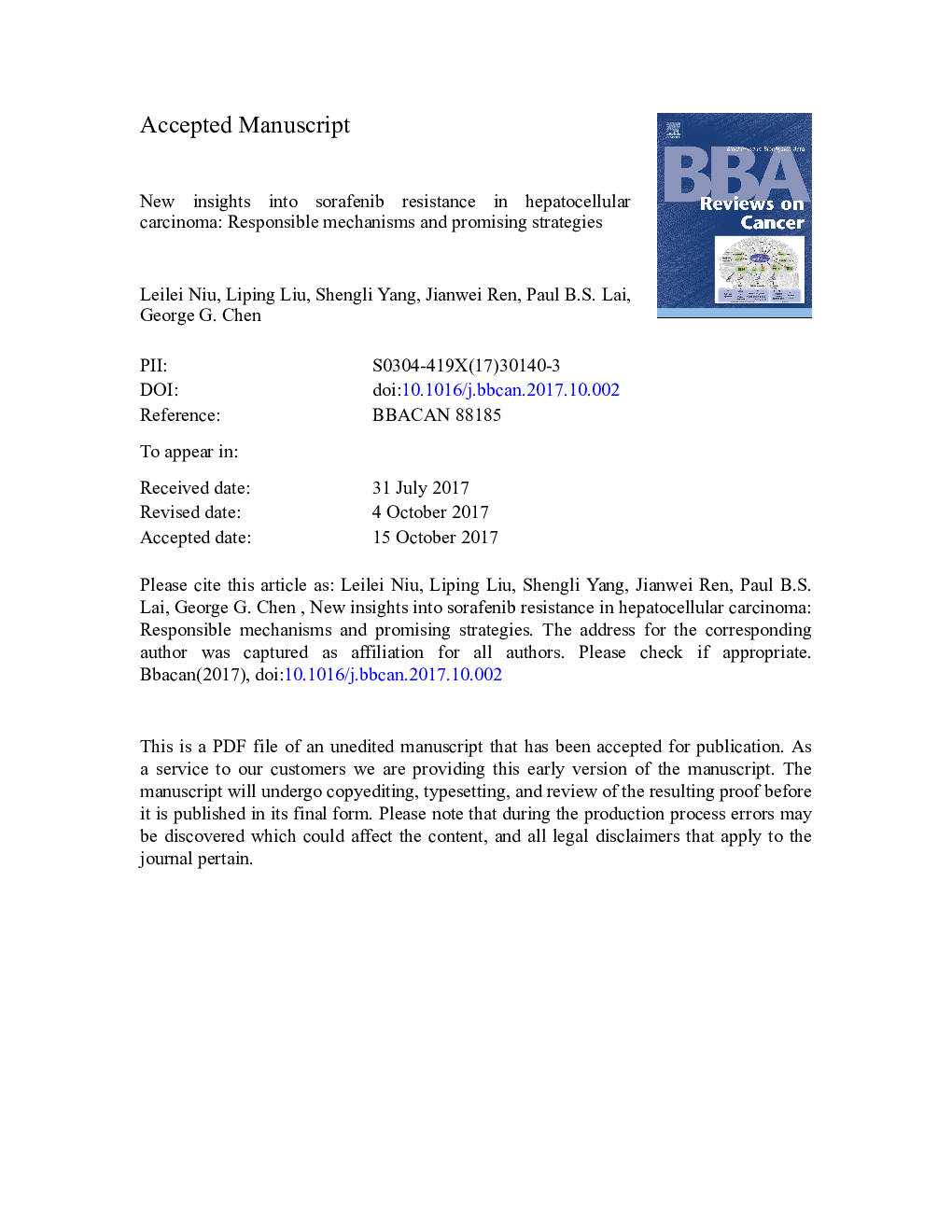| Article ID | Journal | Published Year | Pages | File Type |
|---|---|---|---|---|
| 8429401 | Biochimica et Biophysica Acta (BBA) - Reviews on Cancer | 2017 | 32 Pages |
Abstract
It is disappointing that only a few patients with hepatocellular carcinoma (HCC) obtain a significant survival benefit from the sorafenib treatment, which is currently regarded as a first-line chemotherapeutic therapy in patients with advanced HCC. Most patients are highly refractory to this therapy. Therefore, it is necessary to identify resistant factors and explore potential protocols that can be used to overcome the resistance or substitute sorafenib once the resistance is formed. In fact, a growing body of studies has been focusing on the resistance mechanisms or the method to overcome it. The limitation of sorafenib efficacy has been partially but not fully elucidated. Moreover, some protocols have shown encouraging outcomes but still need to be further verified in clinical trials. In this review, we summarize the recent findings on the potential mechanisms that contribute to sorafenib resistance and discuss strategies that can be used to improve the treatment outcome.
Related Topics
Life Sciences
Biochemistry, Genetics and Molecular Biology
Cancer Research
Authors
Leilei Niu, Liping Liu, Shengli Yang, Jianwei Ren, Paul B.S. Lai, George G. Chen,
